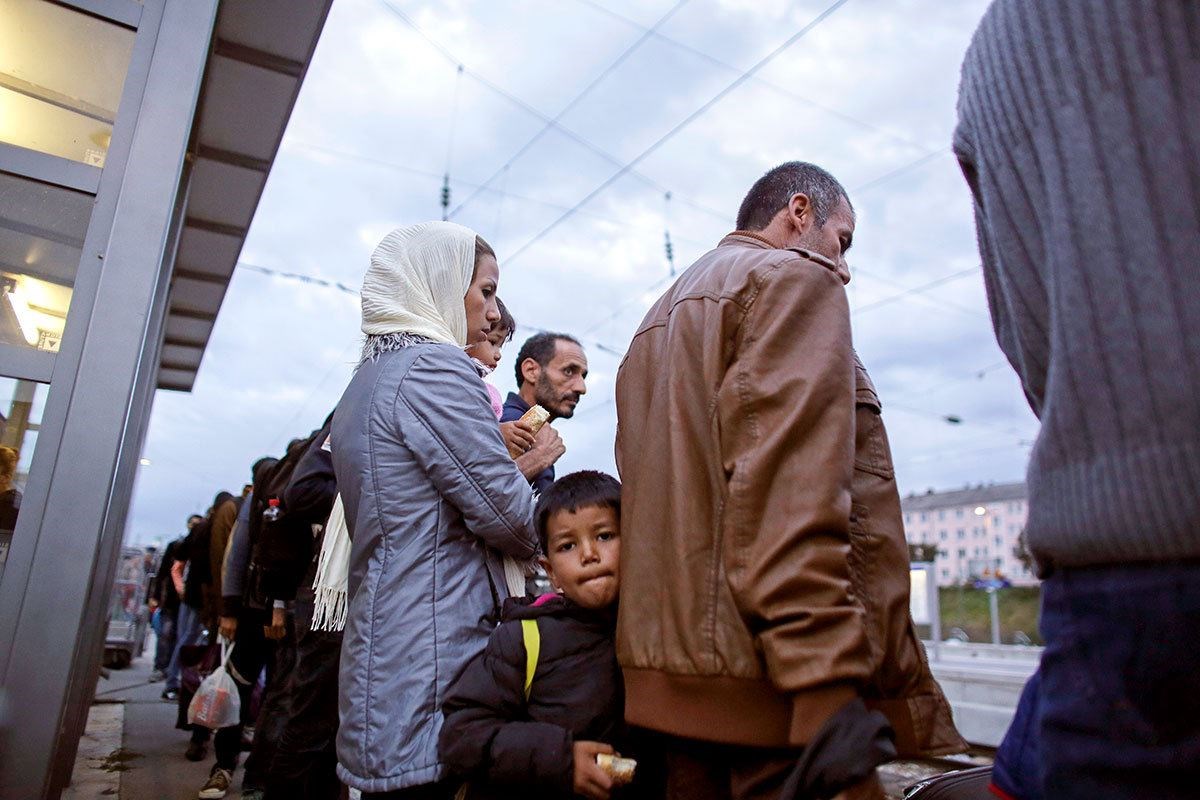Reprinted with permission from The Christian Science Monitor
Speaking of outrage: Hateful and angry behavior typically gets a lot of coverage. Often less visible are the actions of the many people who quickly step forward to protect and support those who have been threatened. That's what this next story is about.
DECEMBER 10, 2018 - Whenever I return from visiting my family in Germany, colleagues and friends ask if things have changed. After a quarter of a century of traveling back and forth, I no longer flinch at the question. I’ve learned that my well-read friends are not caught in an equation I used to see play out in movies and in jokes: Germany equals Nazis equals Holocaust. They are avid listeners to news, readers of newspapers, reportage. What they want to know is whether the pictures on TV match what I saw when I was there. When I first lived in the United States their question meant this: Does the country look different to someone returning from abroad now that the Berlin Wall is down? Today they mean this: Does the country look different now that there are so many refugees?
Can you really tell the difference, they want to know, just walking down the street?
 Refugees line up in the border town of Passua, Germany, for a train to Munich.Markus Schreiber/AP/FileI tell them about black teenagers smiling and waving from bicycles as my mother slowly drives us past them on one-lane Black Forest roads, about cartwheeling children supervised by women in burqas in Wiesbaden’s stately central park. I tell them about untangling conversations in seven languages as my train chugs up narrow mountain valleys to the town where my parents live. I tell them about riding the commuter rail through industrial cities along the Rhine, about how we pull into Ludwigshafen’s airy station hall.
Refugees line up in the border town of Passua, Germany, for a train to Munich.Markus Schreiber/AP/FileI tell them about black teenagers smiling and waving from bicycles as my mother slowly drives us past them on one-lane Black Forest roads, about cartwheeling children supervised by women in burqas in Wiesbaden’s stately central park. I tell them about untangling conversations in seven languages as my train chugs up narrow mountain valleys to the town where my parents live. I tell them about riding the commuter rail through industrial cities along the Rhine, about how we pull into Ludwigshafen’s airy station hall.
Glass walls dome over the rails, allowing travelers on arriving trains a view of the city decelerating beyond. Passengers waiting on the platform spool by our windows as we slow; they reach for bags, hug relatives and friends.
And then I hear yelling: blurred noise at first – anger, outrage rising to high pitch. Words peel off as we roll by: “We don’t want you here!”
In the split second when my window frames the source of the shouts, I see a man grab another’s sleeve. The man he grabs yanks his arm away and turns toward the train. Seconds later, doors swish open and rage pours in far down the corridor: “Go back to where you came from!”
A chorus of murmurs floats in with the shouts, surrounding, soothing, holding: “Calm down, calm down.”
A man, not young, not old, half-runs by my elbow and drops onto a seat two rows ahead of mine. Less than a second and he springs back to his feet, turns, sits back down facing me – no, not facing me: He’s facing the train’s corridor that extends behind me toward where he came in. Whites flash around his irises; his breath is heaving, heaving under his blue coat.
A woman – short, stout, gray-haired, bespectacled – follows on his trail and stops by his seat. She pats his wrist, white hand on brown skin: “I am so sorry,” she says. “Please, please don’t let it get to you.”
The panting man nods toward her, briefly. Does he understand? His gaze flits back down the train car where profanities rise and fall. She sighs and turns. My eyes follow her cranberry coat to where she came from. The train lurches, picks up speed.
I twist my head, glancing over my shoulder and down the corridor. The woman remains standing, holding onto a metal pole for balance. Behind her, dozens of travelers have risen from their seats. They stand along the aisle casually, as though they’d meant to spend this leg of their journey standing anyway. They fill the gap between the rows of seats, blocking the source of curses from our view, buffering, holding space.
They don’t talk; they don’t look at anyone. It’s as though they were simply dreaming out the windows where trees and power lines are swishing by.
“Yes,” I say. “Yes, things have changed.”
Page created on 12/11/2018 12:02:17 AM
Last edited 12/11/2018 12:10:22 AM
